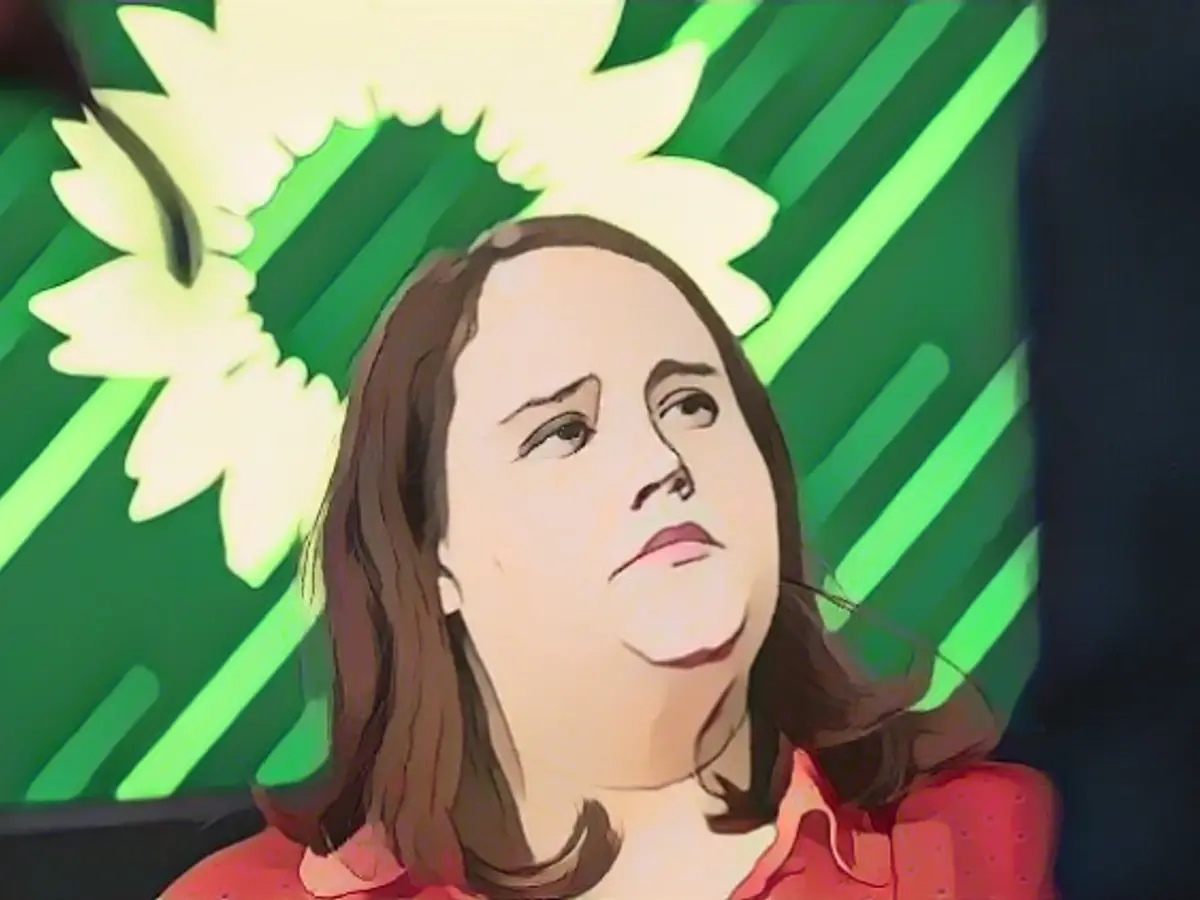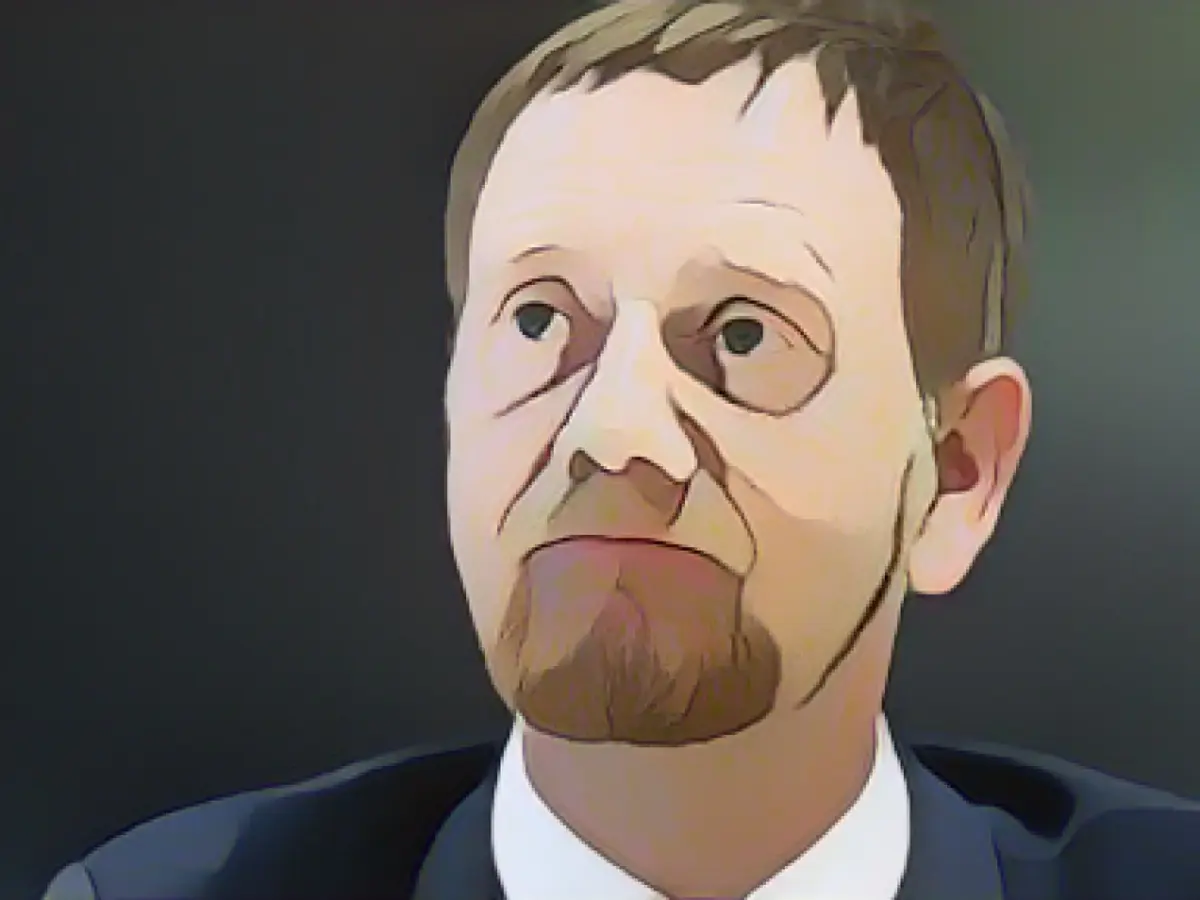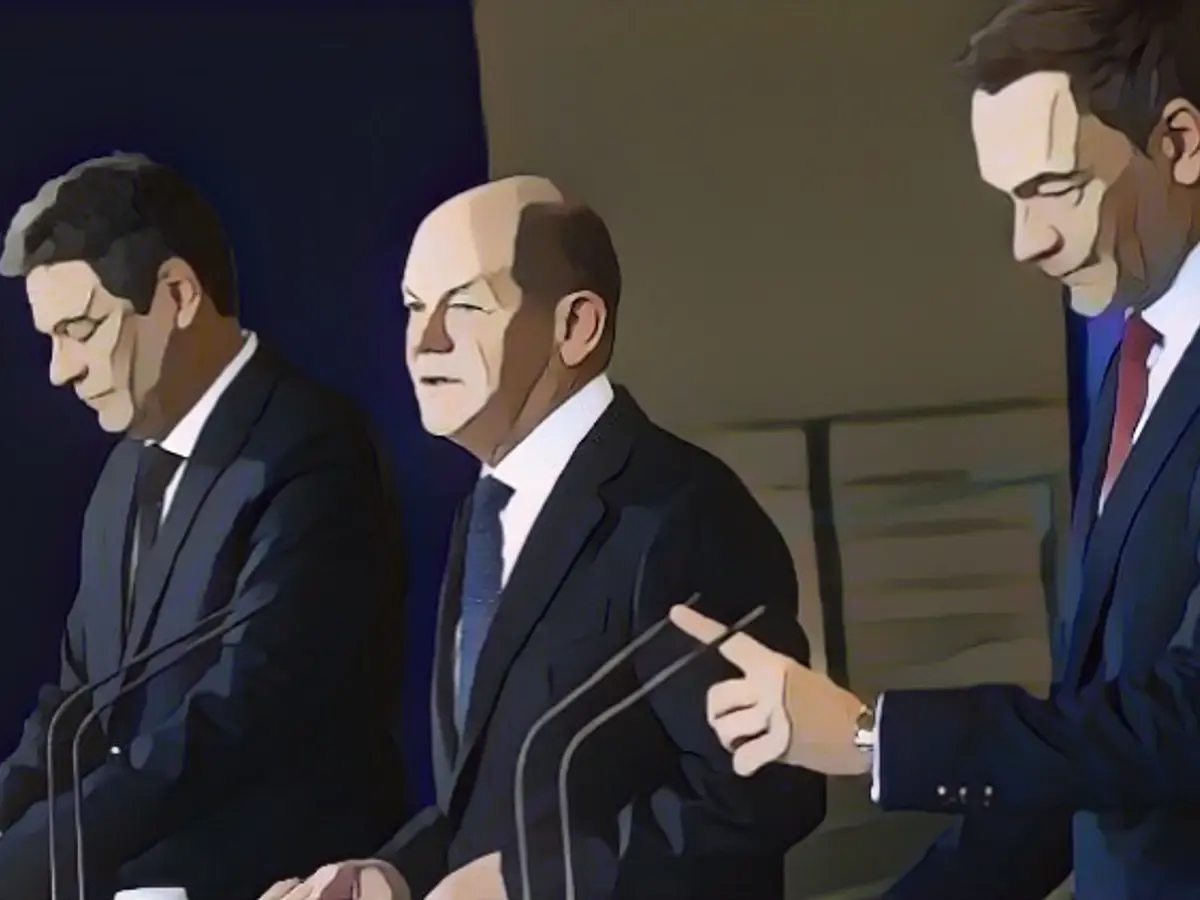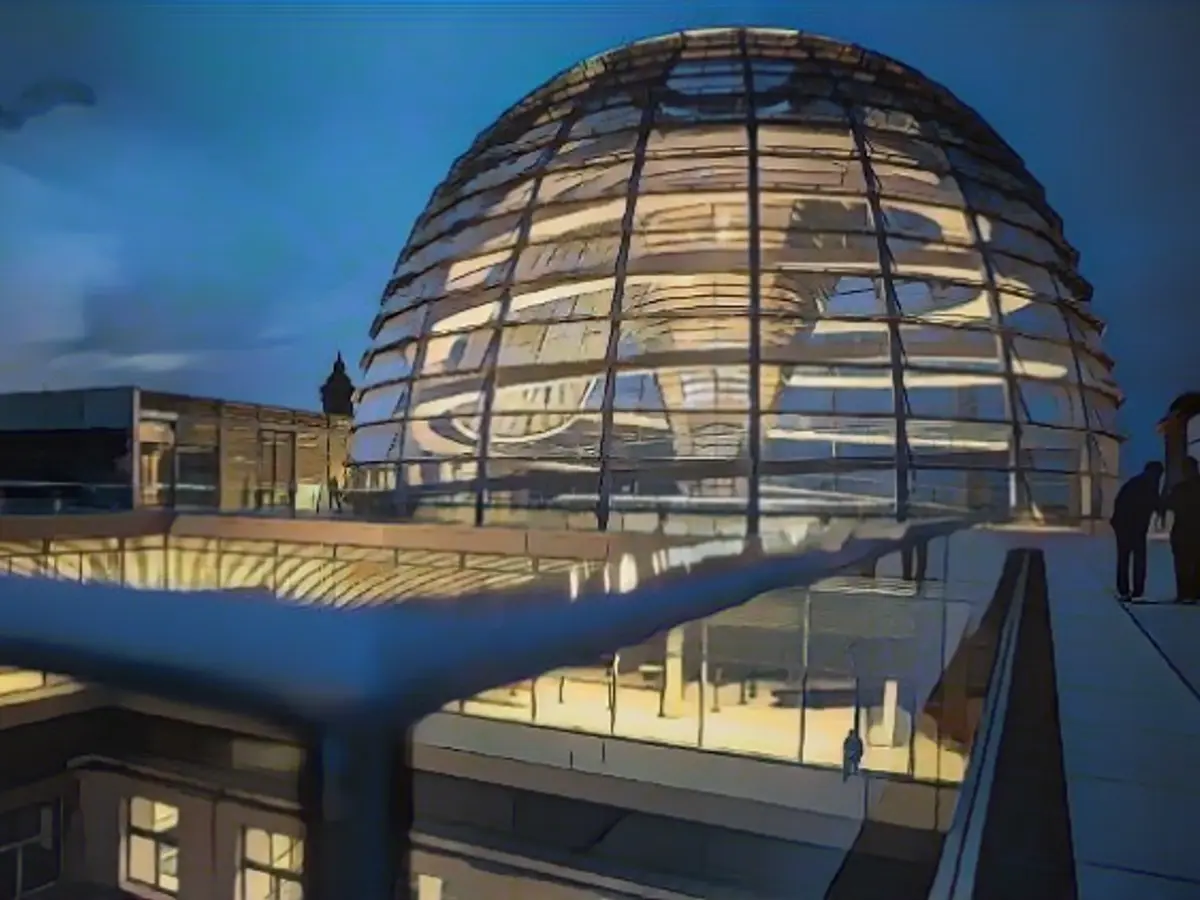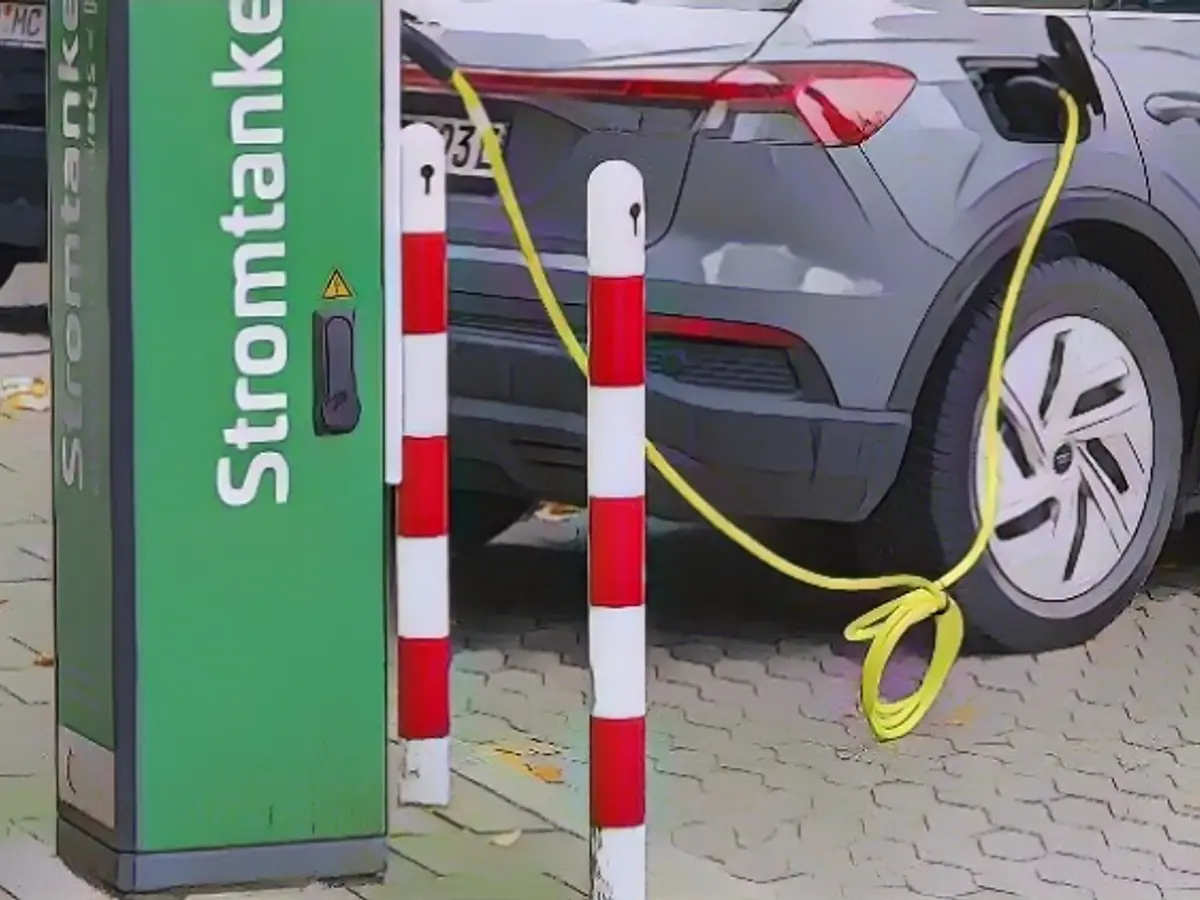Budget Disputes in the Fractured Coalition
The much-anticipated cabinet meeting, meant to discuss a compromise on the budget crisis, is just around the corner. However, Green Party leader Ricarda Lang has downplayed the issue during a recent interview. She remains optimistic that a resolution will be reached soon, averting a potential national crisis and underscoring the coalition's unity.
The coalition's budget crisis is ongoing, with no consensus yet reached for the 2024 budget. Despite the lack of progress, Green Party leader Lang expects a decision to be made shortly. The initiative lies with the traffic light coalition, which consists of the Social Democrats (SPD), the Free Democratic Party (FDP), and the Green Party. They must find a compromise to prevent further setbacks.
Worrying signs of instability surfaced when Federal Chancellor Olaf Scholz, Finance Minister Christian Lindner, and Economics Minister Robert Habeck struggled to agree on a budget framework in private talks. Lindner placed the budget deficit at a staggering 17 billion euros.
The German Federal Court ruled against the reallocation of 60 billion euros, which had originally been earmarked for COVID-19 relief and later repurposed for green investments and economic modernization. The judges also invalidated the government's plan to assign emergency-funded loans to future years, further complicating the coalition's efforts to solve the budget crisis.
CDU/CSU Opposition Under Fire
Lang critically addressed CDU/CSU parliamentary group leader Friedrich Merz. Merz emphasized the need for budget cuts to citizen's income and basic child benefits, a stance that Lang considers divisive and shortsighted. She accused Merz of favoring the rich, stating that such a stance would only serve to divide the country.
The Coalition's Unstable Future
The budget negotiations and the coalition's stability are closely intertwined. The traffic light coalition's struggles extend beyond the budget crisis, as ideological disagreements and external pressures have weakened the coalition's fabric.
Coalition leaders face numerous challenges, including energy policy and economic issues. The coalition's attempts to implement its green climate and energy agenda have often encountered political hurdles, with key policy measures stalled or suspended before implementation.
The Impact of the Collapse
The coalition's collapse, which occurred in November 2024, was a result of the FDP's dissatisfaction with the budget arrangement and the constitutional court's rejection of the coalition's budget plan in November 2023. Lindner's dismissal, which came in November 2024, marked a critical turning point in the coalition's demise.
The coalition's implosion necessitated a snap election scheduled for February 23, 2025. This election will shape Germany's future political and economic direction, making resolving the budget crisis crucial for the coalition's remaining members.
In the face of such mounting challenges, Green Party leader Ricarda Lang remains hopeful that the coalition will find a compromise to overcome the budget crisis and uphold the coalition's integrity.
References
[1] Enrichment Data
The traffic light coalition, consisting of the SPD, the FDP, and the Greens, disintegrated due to internal tensions and external pressures. Notably, the coalition's energy policy and economic challenges contributed to its instability.
The collapse of the traffic light coalition occurred in November 2024, primarily due to the FDP's dissatisfaction with the budget arrangement and the constitutional court's rejection of the coalition's budget plan in November 2023.
The budget manoeuvre plan, which aimed to reallocate €60 billion of COVID-19 funds for green investments, met with opposition from the constitutional court. The court's decision triggered further infighting within the coalition and ultimately led to its collapse.
Fiscal uncertainty and disagreements over energy policy measures, such as the Power Plant Safety Act and the geothermal acceleration act, complicated the coalition's efforts to address its internal conflicts.
In November 2024, Chancellor Olaf Scholz dismissed FDP Finance Minister Christian Lindner, further exacerbating tensions within the coalition. Reports suggest that the FDP had been preparing to exit the coalition for some time.
The snap election set for February 23, 2025, will determine Germany's future political and economic course. The outcome of this election could significantly impact the country's green climate and energy agenda and will likely place stringent demands on any successor coalition.
In essence, the traffic light coalition's collapse was a culmination of internal disagreements and external pressures, which deteriorated its ability to manage various challenges. The coalition's demise and the ensuing election will have serious implications for Germany's energy policies and political landscape.
